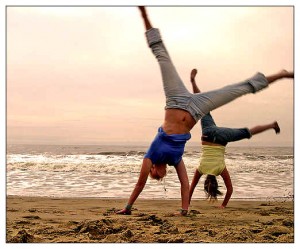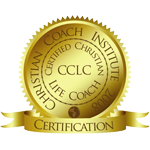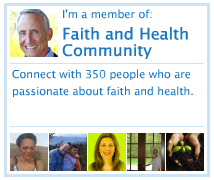 With masks now coming off, but offices, and some schools opting to keep COVID hours in place and on-line ordering at an all-time high, it looks as if more time at home, Zoom meetings, and curbside pick-up is here to stay. COVID has definitely tested healthy living in more ways than one. So… what’s the new normal? For many people, days seem to pass quickly without getting much accomplished around the house. It’s much easier to move into the kitchen and graze throughout the day and sit for long periods of time in front of technology working the day away! Breaks from work have become fewer as there is no reason to “head out to lunch” or to “get home.” I’ve heard many clients say, “I’m working a lot more than I did when I went to the office.” “I feel lost.” “I’m very stressed.” “I’ve gained 10 pounds!” Where is this coming from? In most cases, it’s a structure issue. The responsibilities outside the home and the routines that were in place to get there helped manage and accomplish important goals and tasks that supported health and productivity. So, how do we ensure mental and physical health in this new life and achieve balance? It all begins with the underlying structure of a new routine!
With masks now coming off, but offices, and some schools opting to keep COVID hours in place and on-line ordering at an all-time high, it looks as if more time at home, Zoom meetings, and curbside pick-up is here to stay. COVID has definitely tested healthy living in more ways than one. So… what’s the new normal? For many people, days seem to pass quickly without getting much accomplished around the house. It’s much easier to move into the kitchen and graze throughout the day and sit for long periods of time in front of technology working the day away! Breaks from work have become fewer as there is no reason to “head out to lunch” or to “get home.” I’ve heard many clients say, “I’m working a lot more than I did when I went to the office.” “I feel lost.” “I’m very stressed.” “I’ve gained 10 pounds!” Where is this coming from? In most cases, it’s a structure issue. The responsibilities outside the home and the routines that were in place to get there helped manage and accomplish important goals and tasks that supported health and productivity. So, how do we ensure mental and physical health in this new life and achieve balance? It all begins with the underlying structure of a new routine!
Let’s take a look at the importance of structure as it relates to our faith. In Ephesians 5:15-17 the Bible says, “Look carefully then how you walk, not as unwise but as wise, making the best use of the time, because the days are evil. Therefore, do not be foolish, but understand what the will of the Lord is.” The Lord clearly indicates that to be wise, we need to make the best use of our time. With this in mind, we see that a daily routine that holds us accountable for our time is a good thing.
So, let’s talk about how to establish a new routine. It is first important to make a list of all things constant in your life which should include: A wake-up time, devotion time, outdoor time, bed time, meal times, exercise time, a shopping day for groceries/meal planning, and then your working hours.
Next, establish time blocks for each of those items. Such as: 6:00-8:00 a.m. – Wake Up Time, Devotional, and Breakfast. 8:00 – 11:00 a.m. – Clean Up Time, Shower, Dress, and Head to Home Office. 11:00 – 1:00 p.m. Work. 1:00 p.m. Lunch Break. 2:00- 5:00 p.m. – Work. etc., etc. Additionally, add the things that will change either day to day, week to week or month to month within your time blocks.
Wala!!! You now have created a flexible, block style routine!! To make the task even easier, you can download free templates from Pinterest or just google “free block style routine templates” and see what pops up. Then, print and simply fill in the blanks. I suggest a routine vs. a schedule because there is freedom in a routine. Many people are overwhelmed with moment by moment or hour by hour schedules. Utilizing blocks of time gives you freedom to work within those time blocks to get the items accomplished.
Don’t forget the ultimate reward of the routine…… crossing off your completed items! It literally brings pleasure to the brain and instills the desire to do it again and again. Even when everything does not get accomplished, establishing the routine and crossing off your items sets the mark for achieving it sometime that week or the next. We are more intentional when we have something written down and crossing things off keeps us referring to the routine, focused on it, and moves us along to the end of it.
A routine allows you to feel in control and gives freedom. We thrive on a routine, because it gives boundaries allowing us to be creative and free within a certain context without having to think about everything all at once, which is very overwhelming and causes the stress that my clients have complained of during this crazy time! When we are working one block of time, what is coming next isn’t coming until it does and we are prepared for it. Very freeing!!!
As it relates to weight loss and exercise, meal planning is key, as is daily exercise. So please make sure to incorporate those into your constants as stated above. And, if you are eating out during the week, try to incorporate the day of your outing into your routine which will assist in planning which restaurant you would like to go to. It will also give you the time you will need to plan healthy choices ahead of time from their menu, especially if you struggle with a chronic condition that involves eating or not eating certain foods.
Once you have your routine established, keep it in a place that you will look at it frequently throughout the day. For some, this may be in the kitchen, for others this may be in the office. Whatever the room, have it in a place where the eye is drawn to it. Do not stuff it in a drawer or under different stacks of paper because the old saying “Out of sight, out of mind” really is true. A better idea is to hang it in plain sight, or to have it sitting right beside you as you do your computer work.
Finally, remember to pray for your weekly routine that each day reflects God’s will for your life. It’s okay and not uncommon to make some changes to your routine after you spend time in prayer. God is good and manifesting His glory to the world is why we need a routine in the first place. The more accountable we are for our time, the more we should be able to accomplish His work in our world. Better physical and mental health assist us in serving our Lord Jesus Christ!
The significant events over the last two years affected beliefs, values, attitudes and our habits which then caused reactions and new choices. These choices affected health status and quality of life for many of us. As well, it affected spiritual relationships with the Father and with other people! This is indicated so well in Dale Fletcher’s Life, Stress and Health Model in Pathway 2 Wholeness. (Click here to view this model. ) This model, at the same time, strategically shows that when we cling to the truth during crazy times, how it sustains us on our path to better health and an abundant life with Jesus Christ.
It is my prayer for you that as you seek the Lord, gain ground from the truth of Ephesians 5:15-17, and develop your new routine, that you will not only feel the immediate gratification from the stability it brings to your life, but that you will see it as a springboard to new healthy habits for the remainder of 2021 and into the future!
Stephanie Wilkins, CNC, is a Certified Nutrition Consultant and the founder of No More Bandaids which is a ministry of encouragement to caretakers and those suffering with chronic conditions. Stephanie spends her days researching evidence-based nutrition and health information and develops personalized healthy living plans for clients. As well, she teaches, speaks and blogs about health and wellness from a Christian perspective and is equipped as a Faith and Health Ambassador from this ministry.







